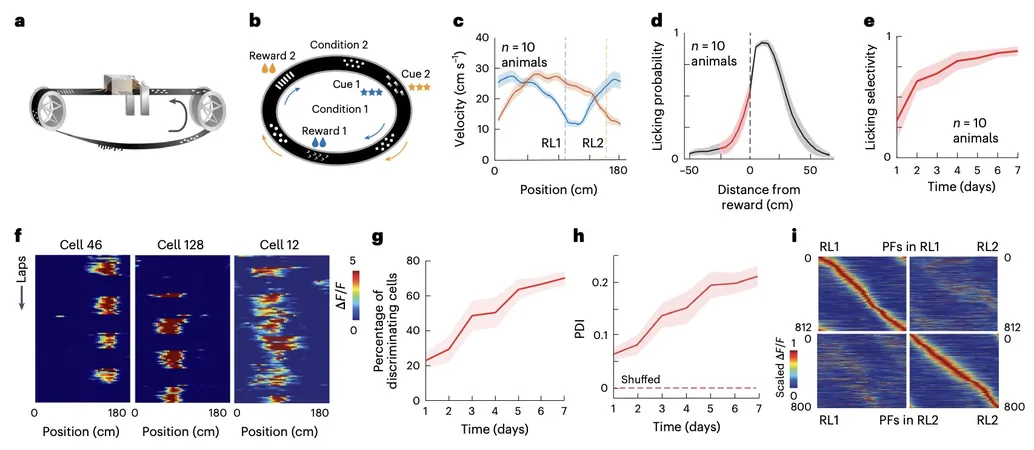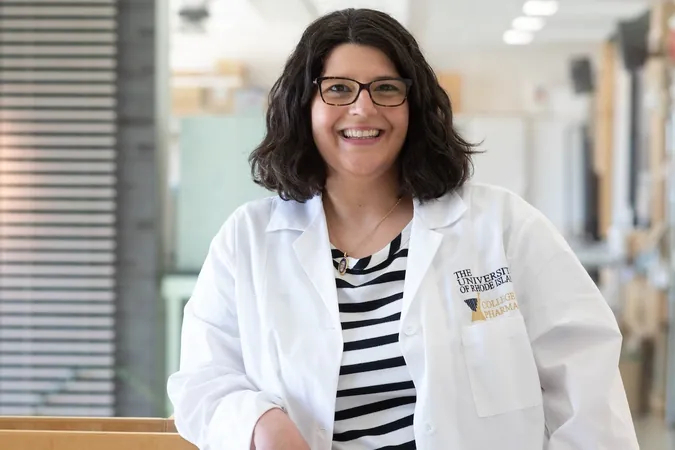
Unlocking the Secrets of Memory: How Your Brain Adds New Ones Without Deleting Old
2025-06-25
Author: Arjun
The Mystery of Memory Acquisition
Our brains are remarkable storage devices capable of holding on to a vast array of experiences, shaping our decisions and actions over time. When we encounter new experiences, our brains create fresh memories while preserving older ones—a feat that has fascinated neuroscientists for years.
Exploring the Neural Processes Behind Memory
Recent research from Baylor College of Medicine delves into this intriguing process, focusing on the hippocampus, particularly the CA1 region, where 'place cells'—neurons activated by specific locations—play a key role. Despite previous studies illuminating aspects of memory encoding, the intricate processes preventing old memories from being overwritten by new ones remain a puzzle.
A Breakthrough Study
The study, published in Nature Neuroscience, observed how brains adapt to newly formed memories through a process called synaptic plasticity. Researchers Sachin P. Vaidya, Guanchun Li, and their team tracked hippocampal place cells as mice engaged in a week-long learning task.
Mice on the Move: A Behavioral Task Experiment
Adult mice were conditioned to run on a treadmill for water rewards, using light cues to maximize their benefits. By employing cutting-edge calcium imaging techniques, which illuminate active neurons, researchers could assess how the place cells responded and stabilized throughout the learning process.
Revealing Findings on Memory Formation
The results were striking: as the mice progressed, the number of stable place cells increased, with these active cells exhibiting a strong correlation with the task at hand. These 'stable' cells were not only crucial for memory retention but adapted dynamically to the learning environment through behavioral timescale synaptic plasticity (BTSP).
The Dynamic Nature of Place Cells
As the task input changed, so did the synaptic connections between place cells, illustrating a remarkable flexibility. This indicates that while certain cells may stabilize over time, their underlying connections are fluid, allowing the brain to integrate new information without losing access to prior memories.
Implications for Science and Medicine
The insights drawn from this research could pave the way for breakthroughs in understanding memory-related disorders, potentially leading to innovative treatments. Moreover, the implications extend to machine learning and artificial intelligence, with researchers aiming to develop systems that mimic these intricate biological memory processes.
A Bright Future for Memory Research
This groundbreaking study not only sheds light on how our brains maintain and acquire memories but also opens new avenues for further research across various species. As we continue to unlock these mysteries, we edge closer to enhancing our understanding of human memory and its many complexities.



 Brasil (PT)
Brasil (PT)
 Canada (EN)
Canada (EN)
 Chile (ES)
Chile (ES)
 Česko (CS)
Česko (CS)
 대한민국 (KO)
대한민국 (KO)
 España (ES)
España (ES)
 France (FR)
France (FR)
 Hong Kong (EN)
Hong Kong (EN)
 Italia (IT)
Italia (IT)
 日本 (JA)
日本 (JA)
 Magyarország (HU)
Magyarország (HU)
 Norge (NO)
Norge (NO)
 Polska (PL)
Polska (PL)
 Schweiz (DE)
Schweiz (DE)
 Singapore (EN)
Singapore (EN)
 Sverige (SV)
Sverige (SV)
 Suomi (FI)
Suomi (FI)
 Türkiye (TR)
Türkiye (TR)
 الإمارات العربية المتحدة (AR)
الإمارات العربية المتحدة (AR)